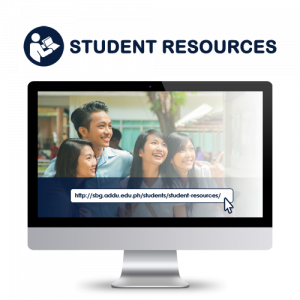
By: Dr. Marilou M. Baarde
Recognizing the different types of learners and their own unique ways of gaining knowledge is a step towards change. Our fear of not being aligned with the standards of other schools worldwide and pushing hard on our students to be at par on the aspect of increased intelligence quotient prevented us from developing our own system.
As an educator, the argument of whether proper education is being given to students to become useful citizens of society is conveyed in every corner of the world. Much of what is laid-out is the ever-increasing discontent amongst students who are learning by basically memorizing facts and concepts in textbooks and not taught on how to think critically and creatively about different ideas. The concern lies merely on teaching what is “right” or “wrong”. Many argued that education should not be concrete. Students receive information and gain knowledge by accepting these facts without question. It is important that these can be challenged by learners in a way that would encourage critical thinking and being intellectually stimulated. This system is also brought about by getting students to perform better on standardized tests which concerned only with competition and numbers.
This educational system we have in place today focuses more on the development of the intelligence quotient (IQ) to assess human aptitude. The theory of multiple intelligences authored by Howard Gardner, include verbal/linguistic, logic/mathematical, visual/spatial, musical/rhythmic, bodily/kinesthetic, naturalist, intrapersonal and interpersonal. This is in recognition of the varied intelligences that people inherently possess that the education system should accommodate. There is a need to train students to solve problems in different ways. The approaches to solving problems should not just be one way. Creative minds will provide new avenues to work out solutions that would lead to more provoking thoughts. That is why some teachers will encourage students to “think out of the box”. The cyclical system concerning points and grades that we allowed to define our students sadly made them develop test anxiety. They are being programmed to repeat words written in textbooks and exams are measures of how smart they are. They should be taught what to expect in the real world. Based on my experience, employees with higher EQ (emotional quotient) outdo those who have high IQ. This is because the success of any profession would depend on our ability to read people’s gesture and respond appropriately to them. It is important that we all develop the mature emotional intelligence skills required for us to understand, appreciate and cooperate with other people. These cannot be achieved with the present education system that we continuously adapt from other countries. Recognizing the different types of learners and their own unique ways of gaining knowledge is a step towards change. Our fear of not being aligned with the standards of other schools worldwide and pushing hard on our students to be at par on the aspect of increased intelligence quotient prevented us from developing our own system. Acceptance is always an issue for a developing country like the Philippines.
Education system needs to be efficient. Our society desires people who can strike a balance between the IQ and the EQ. A lot has changed in the world that we can hardly cope because we refuse to change our ways. We can no longer provide graduates that can meet the requirements of many industries because we refuse to succumb to the present demands in terms of skills development. A lot of courses are no longer significant to today’s industry needs. But we always look the other way. Technology is the future and it has drastically changed the landscape of education. Knowledge is gained not just in the confines of schools but more are taken from the internet. Young people absorb these learning without proper intervention, thus the need for educational reforms that will accommodate the changes in our society. We have to transform our schools to diverse learning environments designed to meet the needs of our learners.


